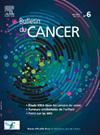Contribution and advances of robotics in percutaneous oncological interventional radiology
IF 1.1
4区 医学
Q4 ONCOLOGY
引用次数: 0
Abstract
The advent of robotic systems in interventional radiology marks a significant evolution in minimally invasive medical procedures, offering enhanced precision, safety, and efficiency. This review comprehensively analyzes the current state and applications of robotic system usage in interventional radiology, which can be particularly helpful for complex procedures and in challenging anatomical regions. Robotic systems can improve the accuracy of interventions like microwave ablation, radiofrequency ablation, and irreversible electroporation. Indeed, studies have shown a notable decrease of an average 30% in the mean deviation of probes, and a 40% lesser need for adjustments during interventions carried out with robotic assistance. Moreover, this review highlights a 35% reduction in radiation dose and a stable-to-30% reduction in operating time associated with robot-assisted procedures compared to manual methods. Additionally, the potential of robotic systems to standardize procedures and minimize complications is discussed, along with the challenges they pose, such as setup duration, organ movement, and a lack of tactile feedback. Despite these advancements, the field still grapples with a dearth of randomized controlled trials, which underscores the need for more robust evidence to validate the efficacy and safety of robotic system usage in interventional radiology.
机器人技术在经皮肿瘤介入放射学中的贡献和进步。
介入放射学中机器人系统的出现标志着微创医疗程序的重大发展,可提高精确度、安全性和效率。本综述全面分析了机器人系统在介入放射学中的使用现状和应用,尤其有助于复杂手术和具有挑战性的解剖区域。机器人系统可以提高微波消融、射频消融和不可逆电穿孔等介入治疗的准确性。事实上,研究表明,探针的平均偏差显著降低了 30%,在机器人辅助下进行介入治疗时,调整的需要减少了 40%。此外,这篇综述还强调,与人工方法相比,机器人辅助手术的辐射剂量减少了 35%,手术时间稳定地减少了 30%。此外,还讨论了机器人系统在标准化手术和减少并发症方面的潜力,以及它们带来的挑战,如设置时间、器官移动和缺乏触觉反馈。尽管取得了这些进步,但该领域仍然缺乏随机对照试验,这突出表明需要更有力的证据来验证机器人系统在介入放射学中使用的有效性和安全性。
本文章由计算机程序翻译,如有差异,请以英文原文为准。
求助全文
约1分钟内获得全文
求助全文
来源期刊

Bulletin Du Cancer
医学-肿瘤学
CiteScore
1.90
自引率
16.70%
发文量
224
审稿时长
37 days
期刊介绍:
Without doubt, the ''Bulletin du Cancer'' is the French language publication of reference in the field of cancerology. Official organ of the French Society of Cancer, this journal covers all the information available, whether in the form of original articles or review articles, but also clinical cases and letters to the editor, including various disciplines as onco-hematology, solids tumors, medical oncology, pharmacology, epidemiology, biology as well as fundamental research in cancerology. The journal proposes a clinical and therapeutic approach of high scientific standard and regular updates in knowledge are thus made possible. Articles can be submitted in French or English.
 求助内容:
求助内容: 应助结果提醒方式:
应助结果提醒方式:


